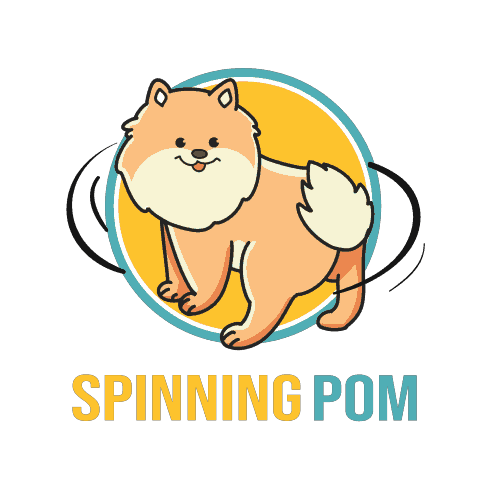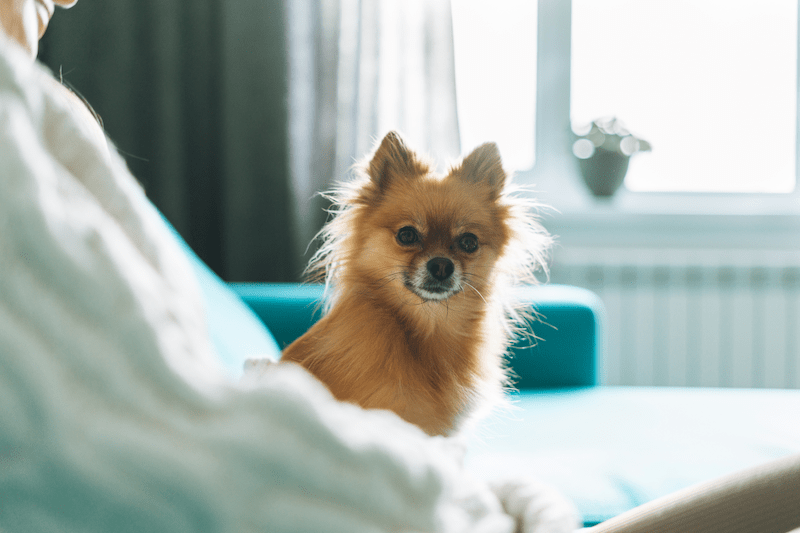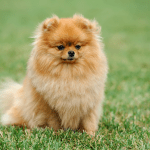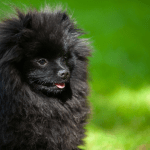Looking for a furry friend that won’t require hours of grooming every day? Meet the Short-Haired Pomeranian! These little balls of energy are known for their charming personalities, cute faces, and easy-to-care-for coats. If you’re looking for a low-maintenance breed that’s full of fun, then a Short-Haired Pomeranian might just be the perfect addition to your home.
One of the many benefits of Short-Haired Pomeranians is their low-maintenance coat. Unlike other breeds, they don’t require a lot of grooming to keep their coat looking great. This means less time spent brushing and more time spent cuddling! Plus, with their adorable faces and playful nature, you’ll want to spend all your free time snuggling up with your new furry friend.
But it’s not just their looks that make Short-Haired Pomeranians such great pets. They’re also incredibly adaptable to different lifestyles and living situations. Whether you live in a small apartment or a large house, a Short-Haired Pomeranian will fit right in. And with their charming personality and love of attention, they make great companions for families, couples, and individuals alike.
So why wait? Consider adopting a Short Haired Pomeranian and experience the joy of owning one of these lovable little dogs!
Why Is My Pomeranian’s Hair So Short?
Age may be the only factor.
As Pomeranians age, their hair may naturally become shorter and thinner. This is because older Pomeranians may not grow as much hair as they did when they were younger. In addition, their hair may become more brittle and prone to breakage, which can lead to a shorter coat.
However, it’s important to note that age isn’t the only factor that can affect a Pomeranian’s coat type. Other factors, such as genetics, grooming choices, and health issues, can also play a role in determining a Pomeranian’s hair length and thickness.
If you’re concerned about your Pomeranian’s hair length or thickness, it’s always a good idea to speak with a veterinarian. They can help you determine if any underlying health issues could be affecting your dog’s coat, and provide advice on how to care for your Pomeranian’s coat as they age.
But no matter what, it’s important to remember that your Pomeranian is still the same lovable and adorable companion, regardless of their hair length. So give your furry friend plenty of love and attention, and enjoy all the joy and happiness they bring to your life!
Growth Stage
Pomeranians, like all dogs, go through various growth stages as they develop from puppies to adults. During these growth stages, their coat may change in length and thickness. For example, Pomeranian puppies often have shorter, thinner hair than adult Pomeranians.
If your Pomeranian is still a puppy, it’s possible that its hair will grow longer and thicker as they mature. This is especially true if your Pomeranian is a long-haired variety, as their hair can take several months or even years to reach its full length and thickness.
However, even if your Pomeranian is an adult, its hair may still be in a growth stage. This is because a Pomeranian’s hair grows in cycles, with periods of growth followed by periods of rest. So even if your Pomeranian has a shorter coat now, its hair may continue to grow and change over
Pomeranian Black Skin Disease (BSD)
Pomeranian Black Skin Disease, also known as Alopecia X, is a condition that can cause a Pomeranian’s hair to fall out and their skin to turn black. The exact cause of BSD is not yet fully understood, but it’s believed to be related to hormonal imbalances and genetics.
Symptoms of BSD can include hair loss, particularly on the back, tail, and hindquarters, as well as black or darkened skin in affected areas. In some cases, the skin may also become thickened or have a leathery texture.
If you suspect that your Pomeranian may have BSD, it’s important to speak with a veterinarian. They can perform tests to rule out other underlying health conditions, and recommend treatment options. Treatment for BSD may include medications, hormone therapy, or changes in diet or grooming practices.
While BSD can be a challenging condition to manage, it’s important to remember that with proper care and treatment, many Pomeranians with BSD can still live happy and healthy lives. So if you’re concerned about your furry friend’s hair or skin, don’t hesitate to reach out to a veterinarian for guidance and support.
Genetic
Genetics plays an important role in many aspects of a Pomeranian’s health and appearance, including its coat type and color. Let’s take a closer look at how genetics can affect a Pomeranian’s coat:
Pomeranians can come in a variety of coat types, including long-haired, short-haired, and even hairless varieties. The specific coat type of a Pomeranian is determined by genetics, which can be passed down from their parents.
In addition to coat type, genetics can also determine a Pomeranian’s coat color. Pomeranians can come in a wide range of colors, including black, brown, orange, and even particolored varieties. The specific coat color of a Pomeranian is determined by the combination of genes they inherit from their parents.
Genetics is just one factor that can affect a Pomeranian’s coat type and color. Other factors, such as grooming practices and health issues, can also play a role in determining a Pomeranian’s hair length, thickness, and overall appearance.
Shedding
Even though short-haired Pomeranians have less fur than their long-haired counterparts, they still shed like any other dog. Shedding is a natural process that happens as part of their growth cycle, and it can vary depending on their age, season, and overall health.
To help manage shedding in short-haired Pomeranians, regular grooming is essential. Brushing your furry friend’s coat frequently can help remove loose hair and keep their coat healthy and shiny. A slicker brush is recommended as it can help reach the undercoat and remove any dead fur.
Regular baths can also help reduce shedding and keep your Pomeranian’s coat clean. It’s important to use a mild shampoo that’s suitable for sensitive skin.
A healthy diet and regular exercise are also important factors in managing shedding. Providing your Pomeranian with a balanced diet and plenty of exercise can help support their overall health and reduce excessive shedding. Always ensure that your furry friend has access to fresh, clean water and a healthy diet that includes plenty of protein and essential nutrients.
Grooming and Maintenance for Short-Haired Pomeranians
Grooming and maintenance are important aspects of caring for any dog, including short-haired Pomeranians. While these little furballs may not require as much grooming as their long-haired counterparts, they still require regular attention to keep their coat healthy and shiny.
One of the primary concerns for short-haired Pomeranians is shedding. While they may not have as much hair as long-haired Pomeranians, they still shed regularly as part of their growth cycle. To manage to shed, it’s important to brush your Pomeranian’s coat regularly. A slicker brush is recommended as it can reach the undercoat and remove any dead fur. Regular brushing can also help distribute oils throughout the coat and prevent matting.
Another important aspect of grooming for short-haired Pomeranians is bathing. While they may not need to be bathed as frequently as long-haired Pomeranians, regular baths can help reduce shedding and keep their coat clean. It’s important to use a mild shampoo that’s suitable for sensitive skin.
In addition to brushing and bathing, it’s important to pay attention to your Pomeranian’s diet and exercise. Providing a healthy diet that’s high in protein and essential nutrients can help support their overall health and reduce shedding. Regular exercise can also help keep your Pomeranian healthy and active.
It’s also important to schedule regular veterinary checkups for your short-haired Pomeranian. Your veterinarian can help identify any underlying health concerns that may be contributing to shedding or other grooming issues.
Importance of regular veterinary checkups
Regular veterinary checkups are an important aspect of caring for your furry friend, especially when it comes to short-haired Pomeranians. These little dogs are prone to certain health issues, and regular checkups can help identify any potential problems before they become serious.
During a veterinary checkup, your Pomeranian will receive a thorough physical exam to check for any signs of illness or injury. Your veterinarian may also recommend additional tests, such as bloodwork or x-rays, to further evaluate your dog’s health.
Regular veterinary checkups can help identify potential health concerns early on, which can make a big difference in the success of any treatment or management plan. For example, if your Pomeranian is showing signs of dental disease, your veterinarian can recommend appropriate treatment and provide tips for at-home dental care. Or if your Pomeranian is showing signs of arthritis, your veterinarian can recommend appropriate medications and lifestyle changes to help manage their pain.
In addition to identifying potential health concerns, regular veterinary checkups can also help keep your Pomeranian up to date on important vaccinations and preventative care. For example, your veterinarian can recommend appropriate flea and tick prevention, heartworm prevention, and other preventative measures to keep your Pomeranian healthy and happy.
Conclusions Regarding a Short-Haired Pomeranian
Short-haired Pomeranians are a delightful and charming breed that make wonderful companions for individuals and families alike. While they may not have the luxurious coat of their long-haired counterparts, they are still just as lovable and playful.
Overall, short-haired Pomeranians are a wonderful breed that brings joy and companionship to their families. With their adorable looks and loving personalities, they are sure to steal the hearts of anyone they meet.





